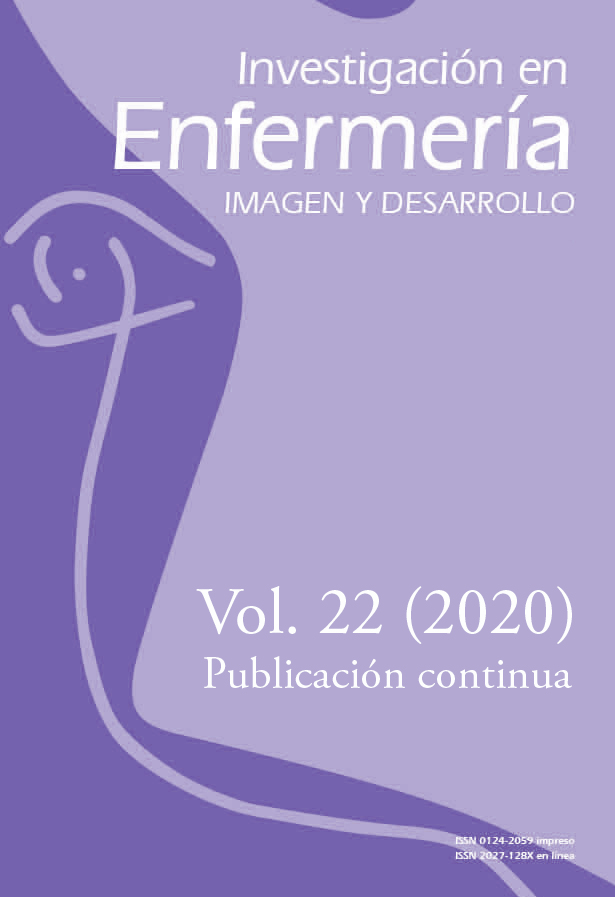Resumo
Introdução. A diabetes como doença crónica, representa um grave problema de saúde pública a nível mundial, pela sua incidência, e pela elevada taxa de morbilidade e mortalidade com fortes repercussões na vida das pessoas. Objetivo. Conhecer efeito de programa de educação para a saúde sobre o conhecimento da diabetes, capacitação para o autocuidado e literacia em saúde no idoso diabético. Método. Estudo quasi-experimental de grupo único, com amostra de 40 participantes diabéticos tipo 2, com 65 ou mais anos de idade, autónomos. Instrumentos: Questionário Sociodemográfico e Clínico; Questionário de Avaliação de Conhecimentos (DKQ-24) (α = 0.83); Escala Atividades de Autocuidado com a Diabetes (α = 0.62); Questionário Literacia Newest Vital Sign (α = 0.76). Realizou-se uma análise estatística descritiva e inferencial. Resultados. Diferenças estatisticamente significativas no conhecimento sobre diabetes entre o 1º e 2º momento de avaliação. Nas atividades de autocuidado com a diabetes encontramos diferenças estatisticamente significativas nas atividades Alimentação, Alimentação Específica e Cuidados com os Pés. A literacia em saúde, na 1ª avaliação, situou-se a um nível de alta probabilidade de literacia limitada e após intervenção evoluiu positivamente, demonstrando um aumento do nível de literacia. Conclusão. Este estudo comprovou a importância dos programas de educação para a saúde como uma ferramenta potente para a capacitação da pessoa diabética. Verificou-se que o nível de conhecimentos sobre a doença na pessoa diabética tipo 2 com mais de 65 anos aumentou de forma significativa, e interferiu positivamente na capacitação do diabético idoso para a gestão das atividades de autocuidado aumentando o nível de literacia em saúde.
Observatório Nacional da Diabetes. Factos e Números 2015: Relatório Nacional da Diabetes [Internet]. Lisboa: Sociedade Portuguesa de Diabetologia; 2016 dez. [citado 2018 jan. 30]. Disponível na: www. https://www.spd.pt/images/bolsas/dfn2015.pdf
Instituto Nacional de Estatística. Censos 2011. [Internet]. Lisboa: Instituto Nacional de Estatística; 2011 [citado 18 fev. 2018]. Disponível em: www.http://censos.ine.pt/xportal/xmain?xpid=CENSOS&xpgid=censos2011_apresentacao
Sousa MR, Peixoto MJ, Martins T. Satisfação do doente diabético com os cuidados de enfermagem: Influência na adesão ao regime terapêutico. Rev Ref. Dez [Internet]. 2008 [citado 18 fev. 2018];II série(8):59-67. Disponível em: http://www.index-f.com/referencia/2008pdf/8-5967.pdf
Associação Protectora dos Diabéticos de Portugal. Diabetes tipo 2: um guia de apoio e orientação. Lisboa: Lidel; 2009.
Bastos FS. Adesão e gestão do regime terapêutico do diabético tipo 2: Participação das esposas no plano educacional [tese de mestrado]. [Porto]: Universidade do Porto, Faculdade de Medicina; 2004 [citado 2018 mar. 01]. Disponível em: https://hdl.handle.net/10216/9654
Bastos F, Severo M, Lopes C. Propriedades Psicométricas da Escala de Autocuidado com a Diabetes Traduzida e Adaptada. Acta Méd Port [Internet]. 2007;20:11-20 [citado 2018 mar. 01]. Disponível em: http://files.jvilelas.webnode.pt/200000087-60b9161b27/ESCALA%20DE%20AUTOCUIDADO.pdf
Martins AC, Andrade IM. Cross-cultural adaptation and validation of the Portuguese version of the Newest Vital Sign. Rev Ref [Internet]. 2014 [citado 2018 mar. 03]; 3:75-83. Disponível em: http://dx.doi.org/10.12707/RIII1399
American Diabetes Association. Standards of medical care in diabetes. Diab Care. 2016;39(1).
International Diabetes Federation. IDF Diabetes Atlas. 7ª ed. Brussels (Belgium): International Diabetes Federation; 2015.
Ministério da Saúde de Portugal. Prescrição e Determinação da Hemoglobina Glicada A1C. Direção-Geral de Saúde. Norma Nº 033. Lisboa: Ministério da Saúde de Portugal; 2011. Disponível em: https://www.dgs.pt/directrizes-da-dgs/normas-e-circulares-normativas/norma-n-0332011-de-30092011-atualizada-a-06122012-jpg.aspx
Ortiz L, Pérez B, González E, Martínez S, Quirarte N, Berry D. Self-Care Behaviors and Glycemic Control in Low-Income Adults in México With Type 2 Diabetes Mellitus May Have Implications for Patients of Mexican Heritage Living in the United States. Clin Nur Research [Internet]. 2016 [citado 2018 mar. 07];25(2):120-138. Dispinível em: https://journals.sagepub.com/doi/10.1177/1054773815586542
Pedro AR, Amaral O, Escoval A. Literacia em saúde, dos dados à ação: tradução, validação e aplicação do European Health Literacy Survey em Portugal. Rev Port Saúde Pública [Internet]. 2016 [citado 2018 mar. 10];34(3):259-275. Disponível em: https://www.sciencedirect.com/science/article/pii/S0870902516300311
Saboga-Nunes L, Sorensen K, Pelikan J, Cunha M, Rodrigues E, Paixão E. Cross-Cultural Adaptation and Validation to Portuguese of the European Health Literacy Survey (HLS-EU-PT). Atenc Primaria. 2014;46(espec cong 1):13. http://www.elsevier.es/es-revista-atencion-primaria-27-pdf
Boavida J. Educação do Doente Terapêutico no Tratamento da Diabetes. Rev Port Cardiolog [Internet]. 2013 [citado 2018 ago. 12];32(supl. 1):32-34. Disponível em: https://www.revportcardiol.org/pt-pdf-S0870255113700453
Torres H, Franco L, Stradioto M, Hortale V, Schall V. Avaliação estratégica de educação em grupo e individual no programa educativo em diabetes. Rev Saúde Pública [Internet]. 2009 [citado 2018 set. 12];43(2):291-298. Disponível em: http://www.scielo.br/pdf/rsp/v43n2/05.pdf

Este trabalho está licenciado sob uma licença Creative Commons Attribution 4.0 International License.
Copyright (c) 2021 Investigación en Enfermería: Imagen y Desarrollo


